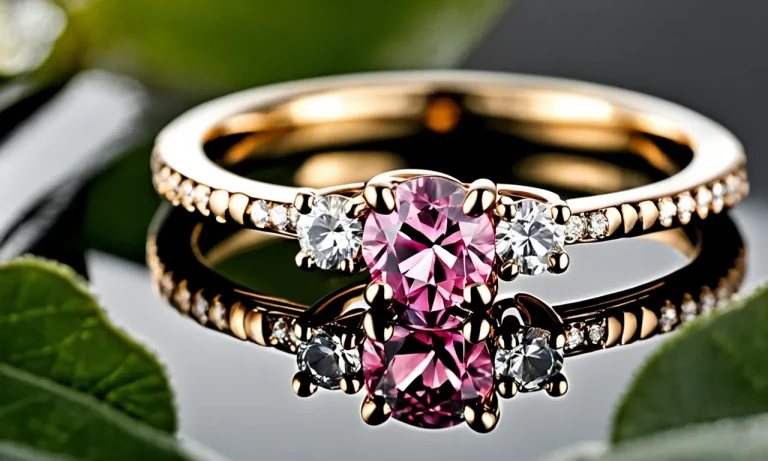The blue ring octopus is one of the most venomous marine animals in the world, yet some enthusiasts still want to purchase them. If you’ve wondered, “Can I buy a blue ring octopus?” read on to learn everything you need to know about these exotic pets.
If you’re short on time, here’s a quick answer: Owning a blue ring octopus is illegal without proper permitting in most regions. These animals require very specific care and their venom can be fatal to humans, so they are not recommended as pets.
Blue Ring Octopus Overview
The Blue Ring Octopus, scientifically known as the Hapalochlaena genus, is a fascinating marine creature that captivates the attention of both marine enthusiasts and casual observers alike. This small cephalopod is known for its vibrant blue rings, which act as a warning to potential predators that it is highly venomous.
Let’s delve deeper into the world of the Blue Ring Octopus and explore some key aspects of this intriguing creature.
Species Information
The Blue Ring Octopus is a collective term used to refer to several species within the Hapalochlaena genus. These species are typically found in the warm coastal waters of the Pacific and Indian Oceans, particularly in areas such as Australia, Indonesia, and the Philippines.
They are known for their small size, with an average length of only 12 to 20 centimeters. Despite their size, they possess a powerful venom that can be deadly to humans.
Venom and Bite Dangers
The venom of the Blue Ring Octopus contains a potent neurotoxin called tetrodotoxin, which can paralyze its prey and potentially cause respiratory failure in humans. It is important to note that these creatures are not aggressive and will only bite if they feel threatened.
However, it is crucial to exercise caution and avoid any unnecessary interaction with them. In the event of a bite, immediate medical attention is necessary, as the venom can cause muscle weakness, difficulty breathing, and even death if left untreated.
Legality of Private Ownership
Due to the risks associated with owning a Blue Ring Octopus, private ownership is generally discouraged and often illegal in many countries. Their venomous nature and specialized care requirements make them unsuitable pets for the average person.
Additionally, their delicate ecosystem and role in maintaining a healthy marine environment make it crucial to preserve their natural habitat. It is recommended to appreciate these fascinating creatures in their natural environment or through educational programs conducted by certified marine facilities.
Blue Ring Octopus Care Requirements
Proper Housing
When it comes to housing a blue ring octopus, it is crucial to provide an environment that closely resembles its natural habitat. This includes a well-maintained saltwater aquarium with ample hiding spots such as rocks or caves.
The tank should be adequately sized, allowing the octopus to swim and explore comfortably. It is recommended to keep the water temperature between 75 and 78 degrees Fahrenheit (23-25 degrees Celsius) and maintain a stable pH level of 8.1 to 8.4.
Regular water testing and filtration are essential to ensure optimal conditions for the octopus.
Feeding
Feeding a blue ring octopus can be quite an interesting task. These fascinating creatures have a voracious appetite and primarily feed on small crustaceans and mollusks. Live food options such as shrimp, crabs, and clams can be offered to stimulate natural hunting behaviors.
It is crucial to ensure that the food is of appropriate size and not too large to prevent any choking hazards. Feeding should take place once or twice a day, and any uneaten food should be promptly removed from the tank to maintain water quality.
Handling Precautions
While blue ring octopuses are incredibly intriguing, it’s important to note that they are highly venomous. Their venom contains tetrodotoxin, a potent neurotoxin that can be fatal to humans. Therefore, it is strongly advised to avoid direct contact with a blue ring octopus unless you are a trained professional.
If you do need to handle the octopus for any reason, it is crucial to wear protective gloves and follow proper handling techniques to minimize the risk of being bitten.
Remember: Safety should always be the top priority when dealing with any venomous creature.
For more detailed information on blue ring octopus care and handling, you can visit National Geographic or National Aquarium websites.
Purchasing a Blue Ring Octopus
If you are interested in owning a blue ring octopus, it is important to understand the process of purchasing one. Here are some key factors to consider:
Finding Reputable Sellers
When it comes to purchasing a blue ring octopus, it is crucial to find a reputable seller. Due to the delicate nature of these creatures and the potential dangers they pose, it is essential to ensure that the seller is knowledgeable and experienced in handling and caring for blue ring octopuses.
Research online or ask for recommendations from other experienced octopus enthusiasts to find trustworthy sellers.
One reputable seller to consider is Octopets, a company that specializes in breeding and selling octopuses. They have a strong reputation for providing healthy and well-cared-for blue ring octopuses to responsible owners. You can find more information about Octopets and their available blue ring octopuses on their website: www.octopets.com.
Typical Pricing and Availability
Blue ring octopuses are not commonly available in the pet trade due to their toxic nature. Therefore, they can be quite rare and expensive to purchase. The price of a blue ring octopus can vary depending on factors such as size, age, and availability.
On average, a blue ring octopus can cost anywhere from $500 to $1,500.
It is important to note that the purchase price is just the beginning of the expenses associated with owning a blue ring octopus. These creatures require a specific habitat, proper diet, and regular veterinary care, which can add to the overall cost of ownership.
Permitting Laws
Before purchasing a blue ring octopus, it is crucial to familiarize yourself with the laws and regulations regarding their ownership in your area. In some locations, a special permit or license may be required to legally own a blue ring octopus.
Make sure to check with your local wildlife or fish and game department to ensure that you are in compliance with any permitting laws.
It is also worth mentioning that owning a blue ring octopus is not recommended for inexperienced or novice aquarium enthusiasts. These creatures require specialized care and handling due to their venomous nature.
Proper knowledge and preparation are essential to ensure the safety of both the octopus and its owner.
Ethical Considerations of Keeping a Blue Ring Octopus
While the idea of owning a Blue Ring Octopus may seem intriguing, there are several ethical considerations that potential owners should take into account before making a purchase. These considerations include the conservation status of the species in the wild, the potential risks to the owner, and the responsibility of providing proper care for these unique creatures.
Conservation Status in the Wild
The Blue Ring Octopus is a small but highly venomous species that is found in the Indo-Pacific region. Due to their stunning appearance and rarity, they have become highly sought after by collectors. However, it is important to understand that the capture and sale of these octopuses can have a negative impact on their populations in the wild.
Overharvesting for the pet trade can disrupt their natural ecosystems and threaten their survival. It is crucial to consider the conservation status of the Blue Ring Octopus and the potential consequences of supporting the trade.
Risks to the Owner
Another important ethical consideration is the potential risks involved in owning a Blue Ring Octopus. While they are undeniably fascinating creatures, they possess a powerful neurotoxin that can be deadly to humans.
Handling a Blue Ring Octopus without proper knowledge and precautions can result in a potentially fatal bite. It is essential to understand the risks involved and ensure that you have the necessary expertise and safety measures in place before considering owning one of these creatures.
Providing Proper Care
Keeping a Blue Ring Octopus in captivity requires specialized knowledge and equipment. These creatures have unique needs and require a carefully controlled environment to thrive. They need a tank with specific water parameters, a suitable diet, and proper hiding spots to mimic their natural habitat.
Providing proper care for a Blue Ring Octopus can be challenging and time-consuming. Potential owners must be committed to investing the necessary time, effort, and resources to ensure the well-being of these creatures.
It is important to note that owning a Blue Ring Octopus is not suitable for everyone. They require a high level of expertise and dedication to provide them with the best possible care. For those who are truly passionate about these creatures and have the necessary knowledge and resources, owning a Blue Ring Octopus can be a rewarding experience.
However, it is crucial to approach the decision with careful consideration and prioritize the well-being of the species in the wild.
Conclusion
While their striking appearance and intriguing behaviors make blue ring octopuses appealing to some exotic pet enthusiasts, the reality is that they require very specialized care and handling. Their highly venomous nature also makes them inappropriate pets for all but the most experienced aquarists.
Those interested in marine life are better off admiring blue rings in the wild or at a reputable public aquarium.
If owning a blue ring octopus still seems tempting after learning all of these care requirements and risks, be sure to thoroughly research your local laws and only obtain an animal from a responsible, permitted source.
Their conservation status and welfare should be top priorities for any prospective owner.






